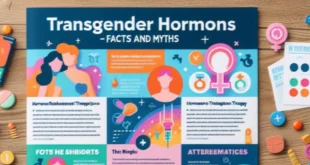Current older transgender adults came of age during a time when they would have been even more pathologized and stigmatized than today. So, many did not even come out, instead keeping their identities hidden for decades and many are now coming out and transitioning later in life. While the older transgender population shares some of same obstacles frequent in the broader older LGBTI+ population, there are some differences. Since the older growing transgender population exists, there is a critical need to know the challenges that pose threats to their overall health and well-being.
Our current Aging Services Network is not equipped to provide decent and non-discriminatory services to older adults who are transgender, even though it provides a variety of services for older adults in general such as legal help, educational activities, meals and transportation. Older transgender adults have unique needs, and there are not many providers who offer outreach and training specifically to help the transgender population. As a result, many older transgender adults are not getting needed support, and they’re often hesitant to seek services at all.
Barriers due to a lack of clinical and cultural competence regarding transgender people and their health needs, and discrimination and bias, prevent quality care. This, along with financial barriers, means that many older transgender adults delay or avoid seeking medical care. This specific care is frequently excluded from private and public insurance plans. Declining health is a result of the inability to access important and needed care. Preventative and other medical care older transgender adults need is often denied due to the their exclusion from plans.
Transgender people report higher rates of depression, anxiety, loneliness, suicidal ideation, disability and general poor health. As a consequence, many elderly transgender people have severe health concerns as they enter their later years without community and social support that is desperately needed.
Other barriers older transgender people face are in the areas of employment and housing discrimination, violence, privacy, and social support.
 Lesbian, Gay, Bisexual, Transgender & Intersex News Lesbian News, Gay News, Bisexual News, Transgender News, Intersex News, LGBTI News
Lesbian, Gay, Bisexual, Transgender & Intersex News Lesbian News, Gay News, Bisexual News, Transgender News, Intersex News, LGBTI News




